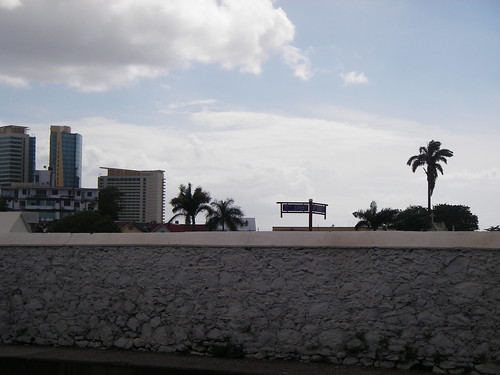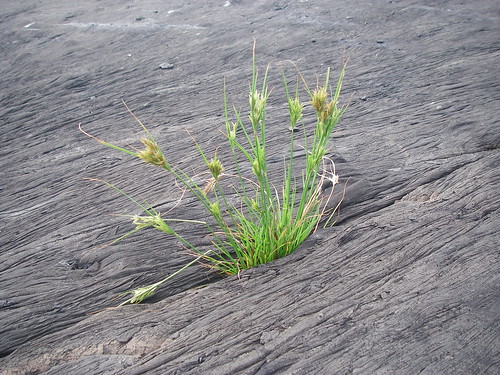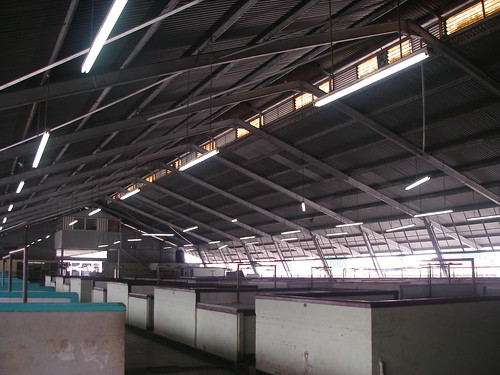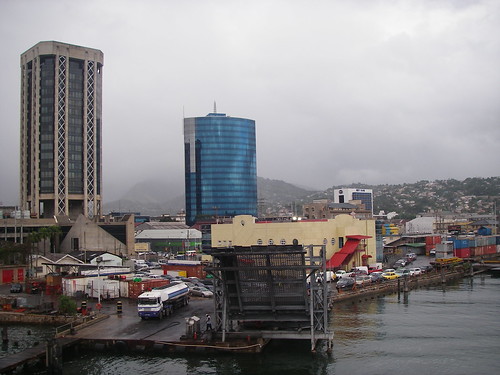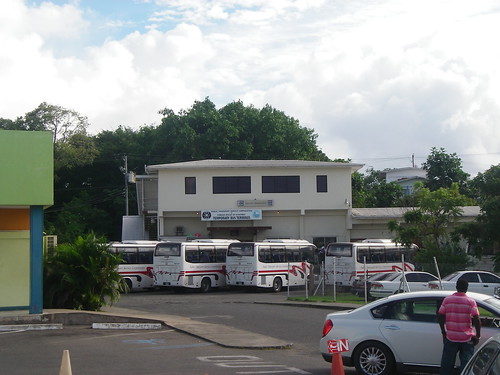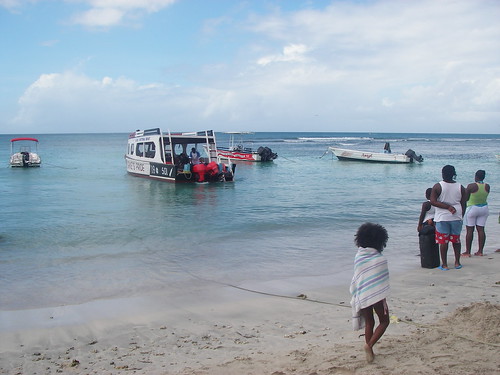Trinidad: How to get around
Wednesday, December 31st, 2008Figuring out the maxi system in Port of Spain can be confusing, although it doesn’t look so at first sight. Some of the platforms at the terminal—adjacent to City Gate Bus Station—display signs that say ‘loading only’ or ‘offloading only’ from ‘6-9 a.m.’. For some unfathomable reason, no maxi would leave for San Fernando until eleven.
I discarded my plan to head to La Brea (for the Pitch Lake) and decided to divert to Chaguanas instead.
it was curiously quiet. I had taken my time over breakfast (cheese crackers and ChocNut) and arrived at the terminal around a quarter to nine, but it would have made no difference if I’d been earlier. The commuter traffic seemed to be strictly one-way.
At nine o’clock sharp, the maxi diverted to another platform where ‘offloading’ had just finished and ‘loading’ presumably began. There were no waiting passengers.
While the engine idled—fuelling the aircon—I considered my plans. The PSTC was running a range of affordable ‘Know Your Country’ tours at weekends, and I was armed with a list of destinations but little else. The Caroni Bird Sanctuary was obviously top of the picks, but the scarlet ibis fly in to roost at sunset and the sky was still overcast in the evenings. I would have to wait and see if the weather improved towards the end of the week. The rain season was due to come to an end.
Touring around Trinidad by maxi was supposed to give me some pointers, as well as allowing me to select a place to stay during my final two weeks. Probably not in Chaguanas where robberies and street crimes had got so out of hand in the run-up to Christmas that the mayor had made a public appeal for people to stay away. The shopkeepers wouldn’t have thanked him, nor would they have welcomed the rogue street vendors who blocked their entrances and sometimes colluded with the robbers (turning up the music to conceal the screams). The police was overwhelmed and the army was getting twitchy.
I mulled this over while we stood on the hot tarmac and waited. The radio was tuned to a risible Eighties station, and I began to regret my decision to travel soouth, looking at columns of red-banded maxis that drove past our solitary green-banded van.
Maxis willl leave when they are full. They don’t stop to pick up en route in Port of Spain. Maybe I should go back to the PSTC. The buses here were likely to run more frequently than in Tobago. But the terminal was forbidding. There were no posted schedules (not even vague ones) and the information booth didn’t look like it sold tickets. The attendant kept her windows firmly closed to preserve the aircon and I didn’t really want to go back and ask.
But when Lady in Red came on, I had enough and jumped out of the van. We had amassed all of three passengers by then.
The ticket booth was a hole in the wall next to the stairs, but the fare to San Fernando was a bargain 6 TT, which is less than quoted in the LP. The tickets are indeed interchangeable—the 2TT ticket I had bought to get from Crown Point to Scarborough was valid here—which made me feel a little richer.
The San Fernando bus left from a corner of the terminal where there was no shade and no benches. There was a long queue. I wrote my notes standing up, glancing longingly at the paper that lay at my feet, but the bus came in twenty minutes. It was a big, bendy job which would be full. People would have to stand, but—unlike in Tobago—boarding was orderly.
Why were there so few maxis? We passed hundreds of empty, parked red-band maxis, but no green ones.
At San Fernando, I looked in the wrong direction, lured by the sea. San Fernando is industrial and there is nothing much to see. The fish market opposite the bus station is a sordid place.
I turned back in the vague hope of finding a grill that wasn’t mainly a bar and was approached by a maxi driver before I had taken more than a few steps.
“Pitch Lake? This way!” He made a sweeping motion and the door of a brown-banded maxi glided open to admit me. A row of them was parked opposite the Sea View Restaurant.
Maxis are more relaxed than buses. People boarded with snacks and cold drinks and one bloke clutched a bottle of beer. Someone offered nuts for sale through the door. Soca music was playing, but quietly.
The drunken bloke made up for it by holding forth at full volume. He asked for a piss stop when we’d come half-way. I glanced at my watch: it was just past noon. Given that it was New Year’s Eve, he may have peaked too early.
